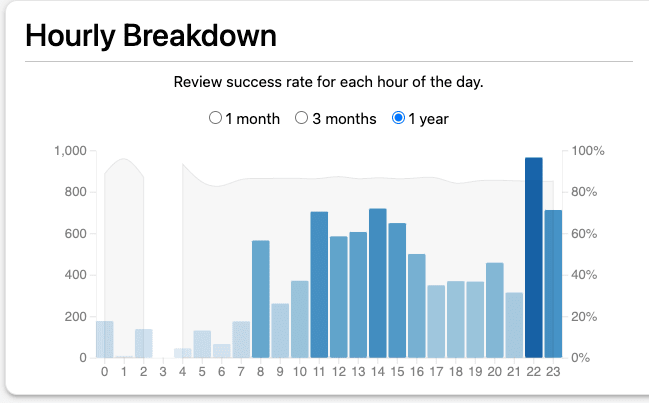Intuitively, when I'm more tired or most stressed. I would guess that is most likely in the morning - if often have to get up earlier than I like. This excludes getting woken up unexpectedly in the middle of the night, which is known to mess with people's minds.
I tried to use my hourly Anki performance, but it seems very flat, except indeed for a dip a 6 AM, but that could be lack of data (70 samples).

Yes! That's the one. Thank you.
I'm looking for a video of AI gone wrong illustrating AI risk and unusual persuasion. It starts with a hall with blinking computers where an AI voice is manipulating a janitor and it ends with a plane crashing and other emergencies. I think it was made between 2014 and 2018 and linked on LW but I can't google, perplex or o3 it. And ideas?
Are you implying that there is a connection between A Three-Layer Model of LLM Psychology and active inference or do you offer that just as two lenses into LLM identity? If it is the former, can you say more?
There is a looong conversation between Eliezer Yudkowsky and Robin Hanson on X about how LLMs model humans.
Thanks, yes that mostly answers it. I got curious when the Buddhist temple thing was mentioned. 11 of 52 weekends not-booked implies a very high utilization, and I'd guess that you had to turn away customers (or at least delay) and it seems you could defer to other locations (though nothing beats Lighthaven of course).
the Bay has taken a nosedive in terms of prices since many tech companies have stayed remote post-pandemic
Has this assessment changed since then? I hear many companies are back to on-site.
How well booked is Lighthaven usually? Or rather: Has there been any need for extra capacity?
The sequence has been reviewed by Scott Alexander in Practically-A-Book Review: Byrnes on Trance.